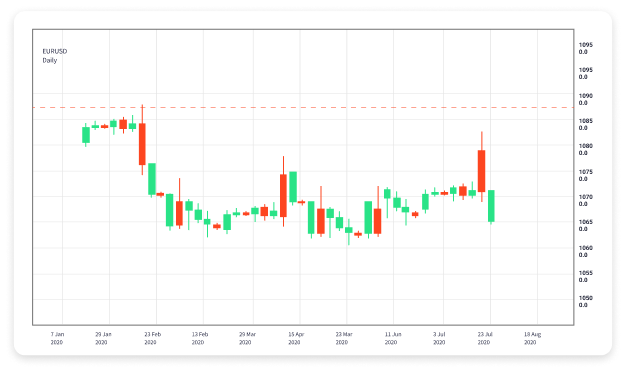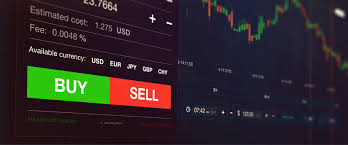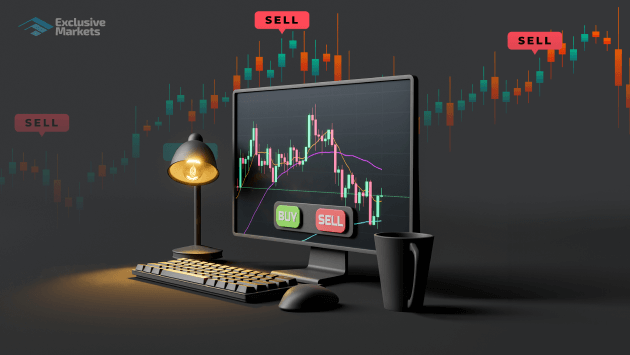
Mastering Forex Trading: A Comprehensive Educational Guide
Forex trading can seem daunting at first, but with the right education and resources, anyone can start trading successfully. The forex market is the largest financial market in the world, surpassing even the stock and commodities markets combined. To navigate this vast ocean of capital, aspiring traders must arm themselves with knowledge. In this guide, we will explore the fundamentals of forex trading, including terminology, strategies, and tools that can help you on your journey to becoming a proficient trader. If you’re interested in learning more, you can visit forex trading education exglobal.pk for additional resources.
Understanding the Forex Market
The forex market operates 24 hours a day, five days a week, and it involves the trading of currencies. Unlike the stock market, which has specific opening and closing hours, forex trading is conducted over-the-counter (OTC), allowing traders to buy and sell currencies at any time of the day or night. This continuous trading provides ample opportunities for traders, but it also requires diligence and a well-structured approach to succeed.
Key Terminology
Before diving into forex trading, it’s essential to understand some basic terminology:
- Currency Pair: In forex trading, currencies are traded in pairs, such as EUR/USD (Euro/US Dollar). The first currency in the pair is the base currency, while the second is the quote currency.
- Bid and Ask Price: The bid price is the price at which you can sell a currency pair, while the ask price is the price at which you can buy it. The difference between these two prices is known as the spread.
- Leverage: Leverage allows traders to control a large position with a small amount of capital. While it can amplify gains, it also increases the potential for losses.
- Pips: A pip is the smallest price movement in a currency pair, usually the fourth decimal place. Understanding pips is crucial for calculating profits and losses in trades.
Getting Started with Forex Trading

To begin trading forex, you will need to choose a broker. It’s essential to select a reputable broker that offers a user-friendly platform, competitive spreads, and good customer service. After selecting your broker, you will need to open a trading account. Most brokers offer demo accounts, which allow you to practice trading without risking real money.
Choosing a Trading Strategy
Different trading strategies can be employed in the forex market, including:
- Scalping: A short-term strategy that involves making numerous trades throughout the day to capitalize on small price movements.
- Day Trading: Traders open and close positions within the same trading day, avoiding overnight exposure to the market.
- Swing Trading: This medium-term strategy allows traders to hold positions for several days or weeks to profit from expected price fluctuations.
- Position Trading: A long-term strategy where traders hold positions for weeks, months, or even years based on fundamental analysis.
Technical Analysis in Forex Trading
Technical analysis is a method used by traders to analyze past market data and price movements to forecast future price action. Traders rely on charts and technical indicators to make informed decisions. Some popular indicators include:
- Moving Averages: These help smooth out price data and identify trends by filtering out short-term fluctuations.
- Relative Strength Index (RSI): This momentum oscillator measures the speed and change of price movements, helping traders identify overbought or oversold conditions.
- Fibonacci Retracement Levels: These levels help traders identify possible support and resistance levels based on the Fibonacci sequence, a mathematical principle often found in nature.
Risk Management
Proper risk management is crucial for long-term success in forex trading. Here are several strategies to minimize risk:

- Set a Stop-Loss Order: A stop-loss order automatically closes your position when a specific price level is reached, limiting potential losses.
- Position Sizing: Determine what percentage of your trading account you are willing to risk on a single trade, usually between 1-3%.
- Diversification: Avoid putting all your capital into a single trade or currency pair; diversify your investments to mitigate risk.
Psychology of Trading
The psychological aspects of trading can significantly impact your decisions and performance. Successful traders need discipline, patience, and emotional control. Here are some tips to enhance your trading psychology:
- Develop a Trading Plan: A comprehensive trading plan outlines your goals, strategies, and rules to follow. Stick to your plan to avoid emotional decisions.
- Keep a Trading Journal: Documenting your trades helps you evaluate what worked and what didn’t, providing insights into your trading behavior.
- Learn from Losses: Accept that losses are part of trading. Analyze them to learn and improve your strategy.
Using Trading Tools and Resources
Leverage the available trading tools and resources to enhance your trading experience. Many brokers provide educational materials, webinars, and trading signals. Online forums and trading communities can also be valuable for exchanging ideas and learning from others. Always stay up-to-date with market news and economic events, as these can heavily influence currency prices.
Conclusion
Forex trading education is a vital aspect of achieving success in the forex market. By understanding the fundamentals, developing strategies, mastering technical analysis, implementing risk management, and maintaining a disciplined approach to trading, you increase your chances of becoming a successful trader. Whether you are a beginner or looking to refine your skills, continuous learning and practice are key to navigating the ever-evolving forex landscape. Remember, trading is not just about making money; it’s about understanding the market environment, making informed decisions, and managing risks effectively.
For additional guidance and resources, consider exploring educational platforms that specialize in forex trading. Investing time in education can provide a foundation that supports a successful trading career.
